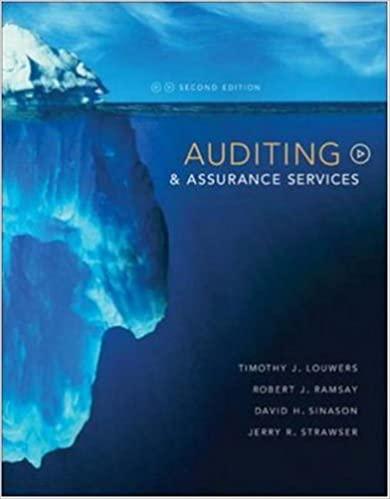Question
Presented below are condensed financial statements adapted from those of two actual companies competing as the primary players in a specialty area of the food
Presented below are condensed financial statements adapted from those of two actual companies competing as the primary players in a specialty area of the food manufacturing and distribution industry. ($ in millions, except per share amounts.)
| Balance Sheets | |||||||
| Metropolitan | Republic | ||||||
| Assets | |||||||
| Cash | $ | 282.3 | $ | 43.1 | |||
| Accounts receivable (net) | 513.7 | 416.0 | |||||
| Short-term investments | 8.3 | ||||||
| Inventories | 562.4 | 719.2 | |||||
| Prepaid expenses and other current assets | 216.6 | 576.7 | |||||
| Current assets | $ | 1,575.0 | $ | 1,763.3 | |||
| Property, plant, and equipment (net) | 2,702.2 | 2,656.5 | |||||
| Intangibles and other assets | 297.3 | 597.9 | |||||
| Total assets | $ | 4,574.5 | $ | 5,017.7 | |||
| Liabilities and Shareholders Equity | |||||||
| Accounts payable | $ | 572.9 | $ | 781.2 | |||
| Short-term notes | 312.1 | 644.4 | |||||
| Accruals and other current liabilities | 685.2 | 620.5 | |||||
| Current liabilities | $ | 1,570.2 | $ | 2,046.1 | |||
| Long-term debt | 648.6 | 648.3 | |||||
| Deferred tax liability | 474.6 | 703.7 | |||||
| Other long-term liabilities | 215.0 | 193.1 | |||||
| Total liabilities | $ | 2,908.4 | $ | 3,591.2 | |||
| Common stock (par and additional paid-in capital) | 229.9 | 440.0 | |||||
| Retained earnings | 2,567.9 | 1,695.9 | |||||
| Less: Treasury stock | (1,131.7 | ) | (709.4 | ) | |||
| Total liabilities and shareholders equity | $ | 4,574.5 | $ | 5,017.7 | |||
| Income Statements | |||||||
| Net sales | $ | 5,794.0 | $ | 7,856.2 | |||
| Cost of goods sold | (2,818.0 | ) | (4,385.7 | ) | |||
| Gross profit | $ | 2,976.0 | $ | 3,470.5 | |||
| Operating expenses | (1,649.7 | ) | (2,933.2 | ) | |||
| Interest expense | (83.8 | ) | (43.6 | ) | |||
| Income before taxes | $ | 1,242.5 | $ | 493.7 | |||
| Tax expense | (295.7 | ) | (68.1 | ) | |||
| Net income | $ | 946.8 | $ | 425.6 | |||
| Net income per share | $ | 1.6 | $ | 7.7 | |||
Evaluate and compare the two companies by responding to the following questions. Note: Because comparative statements are not provided you should use year-end balances in place of average balances as appropriate.
| Metropolitan | Republic | |||
| Return on Assets | % | % | ||
| Profit Margin | % | % | ||
| Asset Turnover | times | times | ||
| Return on Shareholders' Equity | % | % | ||
| Equity Multiplier | ||||
| Acid-Test Ratio | ||||
| Current Ratio | ||||
| Receivables Turnover | times | times | ||
| Inventory Turnover | times | times | ||
| Times Interest Earned | times | times | ||
Of the two companies, which appears riskier in terms of its ability to pay short-term obligations?
Which of the two companies manages their current assets more efficiently?
From the perspective of a creditor, which company offers the most comfortable margin of safety in terms of its ability to pay fixed interest charges?
Step by Step Solution
There are 3 Steps involved in it
Step: 1

Get Instant Access to Expert-Tailored Solutions
See step-by-step solutions with expert insights and AI powered tools for academic success
Step: 2

Step: 3

Ace Your Homework with AI
Get the answers you need in no time with our AI-driven, step-by-step assistance
Get Started


